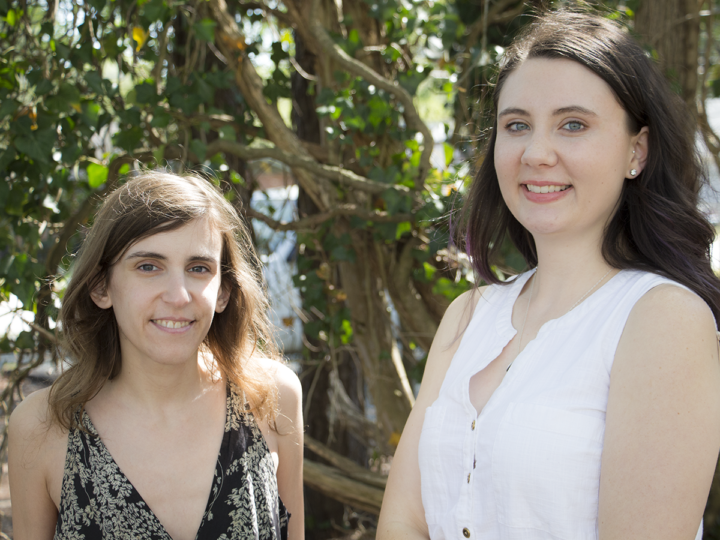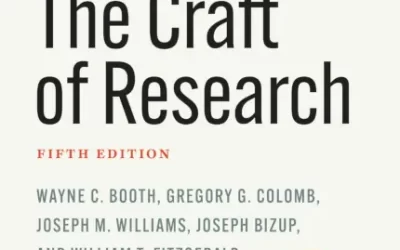
Each month, we will interview one employee to get their opinions on the publishing industry, hear what it’s like to work at Technica, and learn a little bit about them. This month we are interviewing Anne Brenner, who has served as an associate editor at Technica Editorial for the past four years after having graduated from UNC Chapel Hill in 2011. She is also a frequent contributor to the company blog.
How did you get started in the publishing industry? Did you always want to work in the publishing industry?
Writing has always been something that I have been passionate about—it started out as a hobby and then I did it in various capacities at school. I wrote for the school newspaper beginning in elementary school and kept up with that through high school. Then in college, my major was communication studies with a concentration in media production, so a lot of that was heavily writing-based. And then I first got started with writing professionally by working in the news department at a local radio station. So it has been a natural progression, and editing is a part of the writing process that you can’t really do without. If you’re a writer, you’re an editor, and vice versa. You can’t do one or the other, you have to do both. So I got started in editing through writing and am still doing it today!
What is your favorite thing about working at Technica?
The small staff. We have a little under thirty in-house employees and in a business like this I feel like you really need to be able to work one-on-one with your colleagues. If you have too big of a company, working as a team on assignments or copyediting projects is harder. I like the fact that there aren’t too many of us because it gives everyone an opportunity to not only get to know each other but also work as a team and get to know each other’s writing and editing styles and help each other.
What has been the most rewarding moment of your job here?
It’s hard to pick one isolated moment because there are so many of them. One that sticks out is when, at the end of the year, the editors I support will email me and say, “Thank you for streamlining this process so much for me.” Whenever they let me know how much easier their job is because of the work that we do, that’s always really rewarding. And that takes place throughout the year, but especially at the end of the year. It’s nice to know that what we are doing is not going unnoticed by the folks at the other end, because the folks at the other end are remote and we don’t get a lot of face-to-face feedback. So getting that email feedback is always rewarding.
What have you learned about publishing since working at Technica?
The biggest lesson I have learned is that publishing is not an individual effort—it’s a team effort. When I first started writing and editing, I had this image in my head of one person writing a paper or script and then one other person editing it for grammar issues or whatnot. But since working here, I’ve realized that in order for really high-quality work to go to press, there needs to be at least two sets of eyes on everything, and ideally more. Just because your work is edited does not take away from your ability to write. Everyone has different strengths and weaknesses during the writing and editing process, so it’s always good for multiple sets of eyes to be on everything because one person might be better with sentence flow, whereas another person might be better at grammar issues. It’s a team effort. That’s the biggest thing I’ve learned: it’s not a solo job, it’s a team job.
What inspires you?
I read a lot of magazines on different topics and internet articles and blog articles, and professionally speaking I would say that my own writing style and sentence-structure style is inspired by what I read. Going back to high school, teachers always said that doing well on the verbal portion of the SAT or other standardized tests is just reading a lot. You can’t study for it; you have to do a lot of reading. I think the same is true in the professional world, if you are a professional writer. You are born with your own writing style, but a lot of it is acquired and influenced by what you read. So just getting my hands on different types of prose, either fiction or not, has really inspired my own writing and what I put out there for the rest of the world to read.
Do you have a favorite kind of prose to read or write, fiction or nonfiction?
I feel like my writing style, if I had to compare it to a specific writing style, is similar to a magazine column. With all due respect to grammatically correct sentences, I feel like in some cases, when you are writing in a less formal, more conversational style, it’s easier for the person on the other end to really understand what you are talking about. Of course, that wouldn’t work if you are doing a formal research paper, but if you’re writing for a magazine or blog, a lot of times informal is the way to go.
What do you like doing when you aren’t at work?
Well, as you well know, I’m a UNC fan—
Yes, go Heels!
—So I like going to football and basketball games when I can. I also have a personal blog that I like to write, and that has nothing to do with work—it’s just something I do for fun. Some people in their spare time watch TV or go to the movies, and I’ve never been a big TV or movie person—I’d rather write. I write about what I’m feeling and I really enjoy doing that because it’s a way to get myself out there. It has also helped me grow professionally.
If you could only recommend one book, movie, TV show, or music album to someone, what would it be and why?
One book that I have always enjoyed is The Diary of Anne Frank. I first read it when I was probably in fourth or fifth grade and, I don’t know if you’re aware of this, but as of about ten years ago it was the second most widely read nonfiction book in the world, after the Bible. It’s one of those books where every time I read it, and I’ve probably read it upwards of ten times, I get something else out of it that I didn’t get the previous time. I think that really speaks volumes. Anne Frank is probably one of the most well-known nonfiction works, but there are a lot of people who write in a stream of consciousness way, and I think that it’s really fascinating that every time you read a nonfiction work like that, you get something else out of it. You can’t get everything there is to get out of it the first time you read it, and I don’t think you can ever get everything there is to get out of it, which has always boggled my mind. That’s definitely one of my favorites—I have it on my bookshelf at home.
If you could give one editing tip to people, what would it be?
It would probably be not to rely on digital spellcheck and grammar check tools. It will get you in trouble. I remember a college informational event that I attended where the admissions representative told a story about one student who had written an admissions essay about how he wanted to get into the college’s business school. He made a typo when he was writing the word “business” and relied on spellcheck to fix it. Every single place in the essay where he wrote “business,” spellcheck autocorrected it to “bunnies.” So throughout the entire essay he said, “I really want to go to the bunnies school!” I’m going out on a limb, but he probably didn’t get in. So checking your work the old-fashioned way is usually best. Tools like spellcheck and grammar check can be great, but they aren’t a replacement for doing the grunt work.




